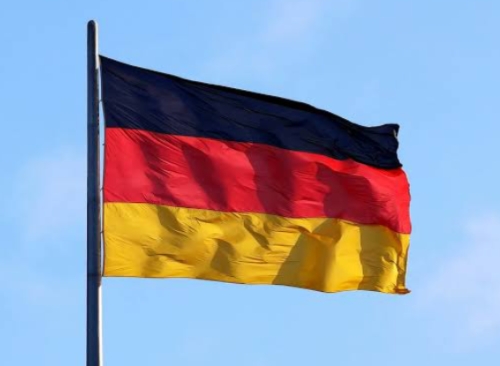The German government has reaffirmed its commitment to supporting the recovery of the North East by launching the second phase of a resilience and peacebuilding project.
The programme, funded with €20 million by the German Federal Ministry for Economic Cooperation and Development (BMZ) through KfW Development Bank, aims to build on the successes of the first phase, which supported over 150,000 beneficiaries.
The joint project, implemented by UNICEF and the World Food Programme (WFP) in partnership with the governments of Borno and Yobe states, focuses on enhancing resilience and promoting peace in the region. The second phase will expand access to essential services, improve food security, and strengthen peacebuilding initiatives, reaching more than 200,000 people.
The joint project launched on Wednesday in Maiduguri followed a successful first phase that supported over 150,000 beneficiaries, including under-five children, pregnant and breastfeeding women and girls, out-of-school children, and food-insecure households in Northeast Nigeria.
“The programme is funded with 20 million Euro by the German Federal Ministry for Economic Cooperation and Development (BMZ) through KfW Development Bank. The joint project, focusing on resilience and peacebuilding, is being implemented by UNICEF and WFP in partnership with the governments of Borno and Yobe states.
” The second phase will expand the achievements of the first intervention by increasing access to essential services, food security and peacebuilding initiatives reaching more than 200,000 people. To broaden its impact, the project will extend into four additional local government areas: Bama and Konduga in Borno State, Potiskum and Jakusko in Yobe State.
” Years of armed conflict in Northeast Nigeria has taken a devastating toll on livelihood opportunities, social cohesion and the well-being of children and women. Insecurity, combined with the escalating effects of climate change, has displaced families, destroyed agricultural livelihoods—the region’s economic mainstay—and contributed to growing food insecurity among vulnerable households and acute malnutrition among children, ” said David Stevenson, WFP Country Director in Nigeria.
He noted that the protracted conflict has also deepened mistrust within communities, making resettlement and peacebuilding efforts difficult. He said that despite the efforts of government authorities and security forces to restore stability, rebuilding trust and economic opportunities remains a gradual process.
Stevenson said the project will deliver a range of essential services and resilience-building interventions, including child protection, food security, safe water supply, nutrition, improved access to education and vocational skills for out-of-school children, promotion of locally produced nutritious foods, strengthened food systems, conditional cash transfers, livelihood opportunities, environmental regreening efforts, and the establishment of peace clubs in schools.
“Food insecurity in Northeast Nigeria remains one of the most critical challenges, exacerbated by climate and economic hardship. Thanks to the support of the German Government, climate-adaptive food systems have been revitalised, improving nutrition and economic outcomes for the most vulnerable. Phase II will ensure these gains are extended to additional communities in Borno and Yobe states,” David Stevenson, the WFP Country Director in Nigeria further said.
“Nigeria’s Northeast region remains one of the toughest places to be a child or a woman. This is why UNICEF is excited that the impact of the phase one of the joint project is improving the wellbeing and resilience at the household level, one child and woman at a time. UNICEF appreciates the German Government for the continued investment to support the protection of children and the most vulnerable populations in Borno and Yobe states,’’ said Cristian Munduate, UNICEF Nigeria Representative.
“The German Government, is proud to support long-term, community-led recovery in Northeast Nigeria. By working with trusted partners like WFP and UNICEF, we are helping build resilience against conflict and climate-related challenges, especially for children and women,” said Dr. Karin Jansen, Head of Development Cooperation, German Embassy Abuja.
Since inception, the project has delivered tangible results: over 60 solar-powered boreholes and 18 hand pump boreholes have been constructed or rehabilitated, providing safe water to nearly 300,000 people. Close to 40,000 out-of-school children have regained access to education through formal and informal learning centres. Additionally, to support year-round food production for over 6,000 smallholder farmers, the project supplied drought-resistant seeds and solar-powered irrigation pumps.











